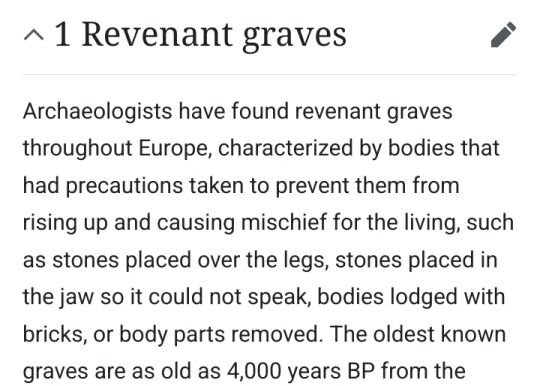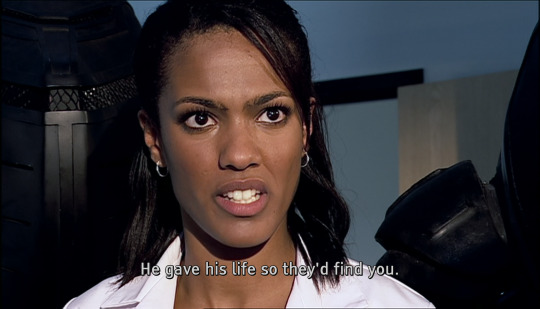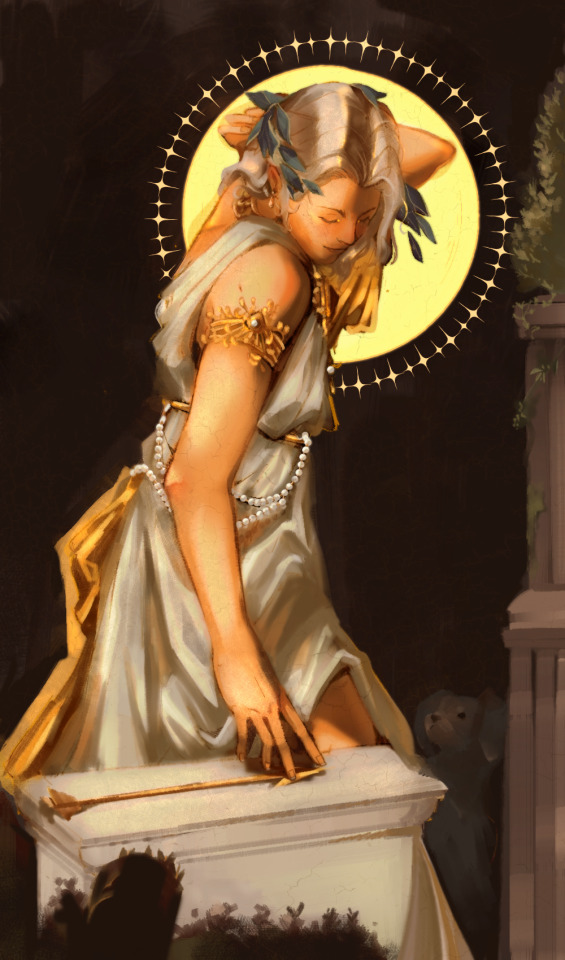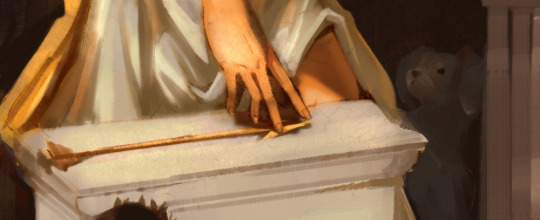#“no stop that's not what we meant”
Explore tagged Tumblr posts
Text
Is she Lucy Westenra, or is she just a vessel for the writer's barely disguised fantasy of a women being punished for her promiscuity? Is she really"Bram Stoker's" Lucy Westenra: a naive, innocent 19 year old, with a cheery personality and a bright future ahead of her? Or has the writer instead just slapped her name on an OC that behaves nothing like her, and- with none of the grace or decorum that Lucy's tragically short story deserves- sexualized her slow and agonising death as much as possible, whilst very unsubtly doing their best to blame her for being murdered, so that we won't object to her being killed again later in an even more gruesome and sexual manner?
#every dracula adaptation gets every character wrong- but the way Lucy is treated in particular makes my blood boil#she's not stupid for being naive. she's not stupid for fixating on marriage. she's 19. A TEENAGER. she's allowed to be young#of course she doesn't have much life experience! that's why it's so tragic! when she dies we mourn the person she was meant to become#and regardless of however adaptations try to spin it; she did not want to be killed. she wasn't aware of dracula like the other characters#she didn't deliberately let dracula kill her. she didn't ask to be a vampire. she wasn't in love with dracula or anything like that#she died not understanding what was happening to her. she never lost her naivety. and that makes it even more tragic in my opinion#anyway thanks for coming to my ted talk#i think my old dracula hyperfixation is reigniting and i don't have the strength to stop it lmao#lucy westenra#dracula#bram stokers dracula#dracula daily#lit student screams into the void
2K notes
·
View notes
Text
Thinking about DP x DC Jason Todd being a revenant again. Here's my scenario. Jason gets called that by some ghost. He's like "what the fuck is that supposed to mean?" He's heard the term before but he doesn't know any actual lore. He googles it. He scrolls past the Leonardo DiCaprio bear movie. He opens the wiki. Sees the words "animated corpse" and gets a chill diwn his spine. He starts reading the first section.

He closes Wikipedia.
That night he has a nightmare that his family buried him, again, this time with precautions. He wakes up in his own grave, full of stones, too heavy to move, to scream.
#CANT STOP THINKING ABOUT THIS#like reading this section in the context of jason is SO HORRIFYING#the idea of someone knowing it was possible for him to come back. to wake up down there. and wanting to keep him there#stay dead. we want you dead. you're too troublesome alive. you're meant to be down there.#so anyways. jason internalizing all this shit and feeling uncomfortable in his own body because he's thinking of it as a corpse#and of himself as haunting a place he doesn't belong#and then meeting danny and danny says 'wow you're a revenant aren't you! The dead so restless they can't bear to stay in their graves'#and he smiles. 'You're amazing. Your will is so strong'#and the Ghost King tells Jason 'You're alive but that doesn't mean you aren't one of mine. I will come for you'#and batman says 'we will keep you safe from that entity and his threats. you don't belong to him'#and jason says 'he didn't mean i was his possession. he said i was his responsibility. he said he would help me if i ever needed him'#and bruce sees the faraway look in his son's eyes and doesn't know what to say#okay I'm done#for now#dp x dc#dpxdc#revenant jason todd#danny phantom#dc#batfam#jason todd#my rambles#my writing
2K notes
·
View notes
Text

A whole new meaning to Gay Chicken.
(For: Anonymous raffle winner!)
#poorly drawn mdzs#mdzs#wei wuxian#lan wangji#This prompt was super cute! Thank you for donating to the raffle!#And thank you to everyone who also donated!#Okay full disclosure I am on very little sleep right now so these next thoughts may be incomprehensible.#(That hasn't stopped me before. Sometimes the voices of the hat man give me good ideas.)#I have been vibrating with excitement for when we finally get to the chicken scene.#Because I really want to draw chickens! I love chickens! They are so optimally shaped for maximal cuteness.#That's a creature that was designed to be fluffy and sit on things. What is there to *not* love!#I know there is more significance to the whole exchange but really...I think Lan Wangji deep down just wants to hold cute creatures.#His hands are big and gentle and not meant for swords! They are made to be filling rabbit hutches with fresh hay and petting chickens.#This is to say; Lan Wangji's problems could all have been avoided if he was a farmboy.#He can still be a farmer. The two of them could run off into the country and start something new.#"True love is possible only - in the next world - for new people” Is a disco elysium quote I think about for wangxian all the time.#Ah but that's a different tangent. Look forwards to more art tomorrow!
1K notes
·
View notes
Text
Nature developed humans, and look how well that turned out.
#self aware intelligence#“no stop that's not what we meant”#user caution is advised#humans are natures version of ai#artificial intelligence#ai debate#ai design#ai controversy
0 notes
Text



It's racist, my dear, to be blunt. People come from outside, they think we're all witches and druids. For God's sake, child, you walked into a piece of string!
#dwedit#doctor who#usertennant#userteri#userdiana#usertreena#miatendos#ruby sunday#enid meadows#roger ap gwilliam#*#this whole thing was just so interesting???#like supposedly the fairy circle meant nothing and mad jack is just a story they made up#but then where did the woman (who is definitely real and definitely supernatural in nature) come from.#what was she saying to people to make them afraid of RUBY. SPECIFICALLY.#why did they call her a HERALD to MAD JACK. then she was used to defeat roger. who by complete coincidence is also called mad jack.#(hey you know what else you could call a herald. perhaps... a prelude. maybe even... a harbinger)#how did ruby TURN INTO the woman when she (i have to assume) died of old age#AND MAYBE MOST IMPORTANTLY. IF OLD DEAD RUBY STOPPED THEM FROM BREAKING THE CIRCLE. WHICH STOPPED EVERYTHING ELSE.#THEN IS ROGER AP GWILLIAM NOT GOING TO REMAIN AS PRIME MINISTER IN 2046?????#or even though that timeline was erased did it still happen Enough for him to... lose? still resign but this time for no reason???#and WHY are we probably NEVER GOING TO GET ANSWERS TO ANY OF THESE QUESTIONS#AND WHERE THE FUCK WAS THE DOCTOR FOR 70+ YEARS
483 notes
·
View notes
Text








I'm not finished yet. ...[🎶!]
KISEKI: DEAR TO ME Ep. 13
#kiseki: dear to me#kisekiedit#kdtm#kiseki dear to me#ai di x chen yi#chen yi x ai di#nat chen#chen bowen#louis chiang#chiang tien#jiang dian#userspring#uservid#userspicy#pdribs#userrain#userjjessi#*cajedit#*gif#i may be mad zherui getting stabbed meant they had to stop kissing#but at least it gave us really cute moments like ai di while dazed and being kissed senseless reaching for his phone#with chen yi's insistent kisses that do not want to be interrupted#and then ai di slapping chen yi's face repeatedly when he Processes what hes looking at#and just their arms and hands and positions in general. cute. comfy in each other's space. sweet.#.............................................BUT CAN WE TALK ABOUT THAT *SHIFT* CHEN YI DOES IN THE 6TH GIF??? HELLOOOOOOOOOO??#AND THE WAY AI DI LIFTS AND TURNS HIS NECK IN THE 3RD?????????#HHHHHHHHHEEEEEEELLLLLLLLLLLLLLLLLLOOOOOOOOOOOOOOOOOOOOOO?#WHEW!!!!! WOW! WAOW!!#also i tried really hard to color/sharpen this enough to show chen yi's tongue in the 4th gif#we all know it's there you can catch it on desktop in a few frames if you squint. <3 its in the 2nd gif too at the very end trust me
226 notes
·
View notes
Text
CLASSES - a comprehensive guide
The first thing that needs to be said is that there is no such thing as a "bad" class. All of them have the potential to be a great detriment OR great boon to the rest of the team, depending on how far along the journey of self-actualization a party member is. Some may have steeper challenges, but this corresponds with greater rewards.
The second thing that needs to be said is that all players are part of a team, and all personal journeys and playstyles are interlinked. No class is truly "solo." Even the smallest viable session is still two people, and even the most suitable classes for solo play are stronger when they're in a party.
The last thing that needs to be said is that the game wants you to succeed. The game, inherently, wants every player to reach godhood, wants every player to self-actualize, wants every player to win. It respects free will and free choice, so it will allow for failures (and, indeed, doomed timelines are vital to the alpha one existing), but Skaia is ultimately optimistic, and tries at every turn to ensure that a golden ending is possible.
Because, after all, SBURB/SGRUB - and Homestuck itself - are about children growing up, maturing, and learning compassion for each other. About fixing their flaws and rejecting the negative aspects of the society they came from. It's about how it is our duty, our responsibility, to become kind, mature people who care about one another, because we will one day be responsible for creating a new society.
And so, without further ado:
ACTIVE (-) Classes and PASSIVE (+) Classes are described with the dichotomy of "powers working for the self" vs. "powers working for others," but I believe this to be an oversimplification of what the active and passive split is. Both active AND passive classes benefit from being in a party; however, an active class will gain fewer party benefits in exchange for being more suited for solo play, while a passive class will be less suited for solo play, but confer much greater benefits to party play.
This is reflected in their personal quests: while active classes and passive classes will both require intervention, empathy, and guidance from their teammates, the struggle of an active class is usually one of grappling with internal flaws, and the struggle of a passive class is one of grappling with interpersonal or societal relations. In other words, the personal quest of an active player will usually involve getting therapized, while the personal quest of a passive player will usually involve addressing a systemic societal issue. Often, both will be required, but whether a class is active or passive will indicate an area of focus.
KNIGHT - / MAID +
PARTY MANAGEMENT
one who wields [aspect] or leads with [aspect] / one who distributes [aspect] or manages with [aspect]
KNIGHTS (-) are a very flexible and versatile class; "wielding" their aspect does not necessarily mean they are skilled at DPS. It actually indicates the way a knight interacts with their aspect, a very straightforward relationship of tradesperson and tool, or soldier and weapon. Similarly, while a knight does not always take up the "leader" position in the party, they will be the "spearhead," a point behind which the other players rally, a beating heart keeping the party together.
This straightforward relationship between a knight and their aspect leads to knights finding little difficulty mastering their aspect once they've begun. Many knights are, in fact, instinctively drawn toward utilizing their aspect, in the same way that they are naturally drawn toward roles of importance or heroism.
Knights often struggle with their perceived place in society, as well as with their innate sense of self and self-worth, seeing themselves as outcasts, resenting the responsibility placed on their shoulders, and fearing vulnerability. Unaddressed, these issues will lead to knights who actively become a detriment to party success. For example, they can dismiss valid concerns, shirk their duties, and in the worst case scenario, actively lead the party down the wrong path, invoking their natural ability to lead for ill.
Therefore, a knight's journey is one of accepting themselves and accepting their duty to better the world. It is about coming to terms with their own insecurities and learning to rely on others. It is about learning to take responsibility, and accepting the banner of a just and glorious cause.
A fully realized knight will be the center of every charge, the guiding star behind which the other players rally. They can provide clarity and guidance to those still on their journeys, and peace and comfort to those who are struggling or in pain. Where the knight goes, the party will follow, as a unified and united front.
MAIDS (+), meanwhile, tend to be on the backlines. If the knight is the forward march, then the maid is the supply line, an incredibly vital role whose absence is disastrous, even if its presence is nearly invisible. Maids have a nearly infinite well of their aspect to distribute, and are uniquely talented at managerial duties - keeping players on task, patching up the holes in a plan, sourcing and supplying resources, so on and so forth.
This is not to say that maids are relegated to support roles - a maid is usually capable of holding their own in combat just fine, especially if they've been endowed with a more combat-suited aspect. Both knights and maids are extremely versatile. That being said, maids truly shine when they're able to take on these backline roles, and many maids are more noticeable by the devastating effects of their absence rather than the invisible touch of their presence.
However, they are the class that most often starts in subservient conditions - low status, strict duties enforced upon them, so on - and their personal journey is a constant struggle against the control of others. Maids whose parties fail to grapple with and undo these shackling forces will find their maids succumbing to the influence or control of malicious entities; in the worst-case scenario, a maid can become an actively hostile enemy or saboteur, invisibly pulling the party's strings and setting them up for failure.
Therefore, a maid's journey is about rejecting societal oppression and throwing off the chains that bind them. A successful maid rises to become the head of the household - nothing occurs within the game that does not first pass the maid's inspection, and their touch ensures that there is a place for everything, and everything is in its place.
A free maid, who belongs to themselves, incomparably increases a party's efficiency. Every communication line is clear, every distribution route is clean, every mystery is solvable, and every plan is airtight. A maid guarantees that nothing can ever go too wrong.
PAGE - / HEIR +
TEAM BONDING
one who must earn [aspect] or inherits the mantle of [aspect] / one who is beloved by [aspect] or awakens to [aspect]
PAGES (-) start the game with the fewest benefits from their aspects, but the greatest potential for growth. Theirs is a constant battle with the self; they are often cowardly and naive. They possess sensitive souls, and while it is incredibly easy to hurt a page, it's much more difficult to build them up. Because of the difficulty of raising this class, it's practically defined by its journey - a constant struggle against the self - rather than its destination, and the powers the class confers.
Pages, like heirs, are classes of inheritance. A page is promoted by trials and tribulations and comes to inherit a greater power than they begin with; in the same way, the class will one day come to embody its aspect, although the road will always be turbulent and long. Moreover, it is a journey without end; pages, being as sensitive as they are, are the most prone to backwards progress, even after reaching their peak.
They prone to staying weak throughout the entire game, never self-actualizing past being the party joke. They attract the obsession and ridicule of stronger-willed players, and their mistreatment can become extremely divisive. A page can easily become a party's albatross, the epicenter of massive interpersonal conflicts, which can tank an entire session.
Therefore, a page's journey is one of the most difficult of all - that of teaching others how to care about other people. Pages rely on great patience, kindness, and understanding. Their sensitive souls must be carefully nurtured and propagated with love and attention. In the same way that a page can tear a team apart, they can bring a team together, all in the name of compassion and empathy. A fully-realized page is the symbol of a party that has linked hands with one another.
Self-actualized pages, as a result of the difficulty inherent to the class, are incredibly powerful and versatile when fully realized. Inheriting the mantle of their aspect, they become pure embodiments of their aspect, capable of achieving impossible feats of raw, unfiltered power, and inspiring all those who gaze upon them.
HEIRS (+) begin the game very strong, but have a difficult time becoming stronger. This is because their usage of their aspect is very instinctual to them, even at times being entirely beyond their control, hence, "beloved by" in the class description. However, because of how naturally their aspect comes to them, it makes taking further command of their powers difficult.
An heir "awakens to" their aspect because their natural, intuitive control often renders them too comfortable to grasp the greater implications of their class. As an inheritance class, heirs can come to embody their aspect, transforming entirely into it. Their challenge lies in breaking out of their comfortable shell and learning how to utilize their powers in more active, intentional ways.
This is reflected in their personal quests. They are often set to inherit great privilege or wealth prior to entering the game, and are thus naive to the realities of the suffering and pain of others. Without a supportive party willing to challenge their views, heirs can perpetuate that pain by submitting to their place in the world, becoming a divisive force within the party, or, in the worst case, losing themselves to their inheritance, and submitting so wholly to their aspect that they become lost to the rest of the team.
Thus, an heir's journey is to question the stratification of the society they belong to, so that they can recognize and address its flaws. They must learn to interrogate their inheritance, separate it from themselves, and reconcile with it. Theirs is an arc of examination and understanding, descending from their position of privilege and peace to learn about the suffering of others, and deciding that they wish to do something about it.
With full command over their aspect, and a clear vision for how it ought to be distributed, the party gains a new and powerful ally - the aspect itself, which will come to embrace the entire party as family. A fully-realized heir connects the privileged and underprivileged, spreading their inheritance to all.
MAGE - / SEER +
GUIDANCE
one who invokes [aspect] or is drawn to [aspect] / one who comprehends [aspect] or is guided by [aspect]
MAGES (-) are a class of prophets, although saying they "see the future" is misleading. Rather, mages "invoke" the future, collapsing causality to align to their desires. Most mages remain unaware that they are doing so until well into their journey. While all players weigh on the scale of causality, affecting both past and future events, and which sequence of events is the "alpha" sequence, mages have the most direct effect.
Because of this ability to invoke future events, mages possess powerful buffing/debuffing abilities. Furthermore, as one of the two knowledge classes, a mage usually has a very deep understanding of their aspect, and an intuitive knowledge of how the flow of time and causality function. They are "drawn to" their aspects in this way, instinctively searching out points where their influence can affect the flow of events.
However, with great power comes great cost; the mage class is usually assigned to those who are stricken by tragedies and prone to negativity and self-loathing. Mages often begin the game as a detriment to the party, "prophesying" future events that leave the party - including themselves - at a disadvantage. In the worst case scenario, a mage can invoke certain doom for their party or themselves.
Therefore, it is vital that a mage address their tragedies and be given a chance to heal and grow. The ones most struck by tragedy, theirs is a journey of reclaiming lost joy and rediscovering lost hope. However, the transformation is powerful once completed - as the one who suffers tragedy and loss most intimately, a mage can also come to be one of the most empathetic and compassionate members of the team.
If a mage is uplifted, and capable of believing in a kinder and gentler world, then their ability to invoke the future - and the aspects of their aspect that they are drawn to - become kinder, as well. Pain and suffering still have their place, but the ending will be a happy one. With a fully empowered mage, the future will always be better than what came before.
SEERS (+) see multiple branching paths. A mage determines where a road will be built, but a seer tells you where a road CAN be built. They are also often gifted with knowledge of the game and its mechanics, and are especially uniquely gifted with understanding of their own abilities. In this way, they "comprehend" their aspect.
Seers themselves are not particularly gifted in combat through their classpect alone; however, in exchange, they often play a vital role in steering the party. They are the game's built-in guides, with an intuitive knowledge of the game's victory conditions, as well as an instinctive desire to lead others along their paths. Seers are, therefore, one of the most important classes in the game, when one is present.
However, the ability to see is a burden as well as a gift. Seers find themselves paralyzed by choice, and often doubt their own abilities to choose "correctly." They are prone to becoming mired in what-ifs, and struggle with political or ethical debates with no clear answers. In the worst-case scenario, a seer may feel so cursed by their sight that they self-destruct, and deliberately choose poor or incomprehensible answers, in an attempt to free themselves of their sight.
Thus, a seer's quest is, ironically, to see the world beyond the purview of their aspect. They must come to have a more comprehensive understanding of the world they live in, and what purpose they are trying to achieve, so that they can feel confident in the choices they make. A seer is often blind - their journey, therefore, is that of regaining their vision, by connecting with the world outside their inner sight.
A seer with a clear vision for the future will always know exactly which path to choose. A party with such a seer in it will never be stuck and never be lost. If there exists a path to self-actualization, the seer will know it. And if there exists a path to a breathless and perfect victory, a fully-realized seer will light the way.
THIEF - / ROGUE +
UTILITY
one who steals [aspect] from others or steals with [aspect] / one who steals [aspect] for others or steals from [aspect]
THIEVES (-) are a very difficult class to play. They start out with almost no passive abilities regarding their aspect, and their ability to actively use their aspect is contingent on their ability to first "steal" it from someone else. Thus, they are always playing a game of resource management, and there is always a chance for them to be left helpless after a heist gone wrong.
However, their gimmicky nature allows them to overtake other classes even in that class's specialty, if they can set up the exact right circumstances and manage their resources well. This makes them incredibly versatile, especially when a thief is working together with a party, and thus able to count their party among their potential resources. It takes great cunning to play the thief class well.
However, this also makes the thief a potentially dangerous element to the rest of the party. Thieves are often egotistical and self-serving, willing to see enemies and allies alike as resources and tools. Unaddressed, their reckless, selfish natures will earn their teammates' distrust and enmity. In the worst case scenario, a thief running rampant can severely harm the party, or earn so much ire that the party turns against them.
Thus, their journey is that of realizing that their selfishness and ego are flaws - the classic parable of "money doesn't bring happiness." Beneath their uncaring surface lurks genuine emotional distress; a thief must come to realize that their greed and selfishness is an active detriment not only to the people around them, but their own selves. Only then can they heal from their injured souls.
A thief that has undertaken this journey is one who has realized that they are stronger when they are working with others. Their versatility, creativity, and cunning are incredible assets once harnessed toward the will of the party. No situation will ever be inescapable, no safe uncrackable, and no problem unsolvable - not if the thief has anything to say about it.
ROGUES (+) are similarly difficult to play. Unlike the thieves, rogues do see passive benefits from their aspects. However, their active abilities are much less straightforward, and rogues often struggle with understanding them. A rogue's role is to redistribute wealth - thus, "stealing for the sake of others."
A rogue, being able to steal directly from their aspect, truly shines when given enough time to prepare. If a thief must fly by the seat of their pants, then a rogue is a heist planner - they have an infinite box of tools to pull from, if only they know what tools they'll need for the job. This makes them incomparably versatile, even if not necessarily in the heat of combat.
Rogues take on the mantle of challenging the status quo. They usually begin the game already in opposition to their society, seeking out better alternatives and considering unorthodox options. However, not every party is ready for a rogue's radical ideology, and not every rogue has considered the full consequences of their belief in change; in the worst case scenario, the rogue can become outcasted and disregarded, or cause an upheaval that proves disastrous, rioting for the sake of rioting.
It often requires the help of others for a rogue to understand how to use their powers. In the same way, it requires the party's honest communication and exchange of ideas to help a rogue grasp exactly what form their rebellion ought to take. A rogue knows instinctively that something must change; their journey is learning how they ought to go about it.
Once they do, a rogue - given enough time to prepare and plan - is the ultimate utility player, having the right tool for every possible situation. Their abilities are only magnified in a party setting, as their teammates become variables that unlock new possibilities. A party with a fully-prepped rogue always has a perfect plan, a way to solve any problem that they might face.
WITCH - / SYLPH +
AREA CONTROL
one who manipulates [aspect] or achieves dominion through [aspect] / one who nurtures [aspect] or creates a land of [aspect]
WITCHES (-) carry with them the winds of change. A witch manipulates, changing properties of their aspect and their aspect's effect on others, creating a "territory" over which they rule. They see few passive benefits of their aspects, in exchange for their active abilities being so all-encompassing and overwhelming.
Once their territory has been established, witches make the rules. Their changes can be permanent, temporary, massive, and miniscule. However, a witch "achieves dominion" with their aspect - this means that they must first struggle to create this domain, and it's difficult for their abilities to manifest until they do, often leaving younger witches weak and vulnerable.
Witches have strong feelings for how things should and should not be, but not necessarily grounded ideas for how to implement them, often due to some "outsider" status in society. Unfocused witches become dangerous for the party, as they are easily manipulated; in the worst-case scenario, they can fall in with malicious forces, who can sway a witch's turbulent heart and utilize them as a force for negative change, rather than good.
Thus, a witch's journey is that of interrogating right and wrong. A witch must struggle with morality and ethics, and come to clarify their own beliefs; only then can they know what sort of domain they wish to establish, and what sort of rules they wish to enforce. Once they know their own hearts, they can shake off the insidious whispers of malicious external influence.
As if a reward for their struggles for autonomy and independence, the witch is the one whose will is most imposed on the world that comes after them. Just as an evil witch putrefies the world around them, a fully-realized witch who has decided to use their influence for good can create a near-utopia.
SYLPHS (+) call to mind the images of fey folk who sprout plants where they walk. That is how a sylph "creates a land" of their aspect - merely by existing, the world around them becomes suffused by it. A sylph's mere presence nurtures, grows, and heals their aspect; unlike witches, who manipulate what is already there, sylphs can create something from nothing.
The establishment of their domain comes naturally to them. Those caught within it are on the receiving end of their aspect, whether they want to be or not. In exchange for such powerful passive abilities, a sylph's active abilities are weaker, and usually unsuited for solo combat, generally being of healing, buffing, or debuffing nature.
A sylph is prone to selfishness - to luxuriating within their own land, their own aspect, their own mind. They often have difficulty connecting with others and understanding why their own personal world may not be to the liking of the world outside of themselves. Often, they are aloof. An unrealized sylph can cause great harm to the world around them, their domain choking out and smothering their party; in the worst case, they can mire their party within it, leaving their party unable to proceed.
Thus, it often requires the outside world to breach their safe haven in order for a sylph to grow. They must be made uncomfortable, and then made to accept that uncomfortable things are also important - maybe even more important than comfort, at times. Growth often requires pruning; a sylph's journey is to come to understand that good intentions may lead to harm, and, vice versa, that harm can often lead to true growth.
Sylphs can provide the greatest compassion and emotional comfort within a party, encouraging - if not enabling - their teammates' growth in their personal journeys. Once a sylph understands when it is appropriate to encourage, and when it is appropriate to pull back, there is no refuge safer for the party than the sylph's domain.
PRINCE - / BARD +
OBSTACLE REMOVAL
one who destroys [aspect] or destroys with [aspect] / one who allows the destruction of [aspect] or allows destruction through [aspect]
PRINCES (-) possess the ability to annihilate, a destructive class not limited to physical or tangible objects. Princes also enjoy auxiliary benefits as befits their royal titles - many princes start the game with great talents, great status and wealth, or both. They are also endowed with royal presence; their very existence provokes strong emotions from those around them, for good or for ill.
One of the more straightforward classes in the game, a prince's ability to destroy most commonly manifests as DPS. However, their abilities encompass a greater scope than mere damage - the prince's ability to annihilate figurative or metaphysical concepts makes them capable of directly removing any obstacles that stand in their way. As if hungry to consume their aspect, they are naturally drawn towards where it congregates.
However, with great power comes great responsibility: princes are often the most psychologically maligned within the party, and their destructive talents can very easily become self-destructive instead. Usually the result of societal pressure, trauma, and suffering, a prince is prone to embodying the lack of their aspect, rather than its presence. In the worst-case scenario, a prince spreads this misfortune to the rest of their party, destroying the presence of their aspect from their session altogether, often taking themselves along with it.
A prince must be shown compassion. Though they are often viscerally unpleasant to engage with, turning a blind eye to foolishness, loneliness, and suffering - which a prince embodies - is one of the worst things that a party can do. Though the effort at times seems undeserved, to heal a prince requires a staunch belief that there is good to be gained if we are kind to each other. This kindness will be returned; once you are counted among a prince's "people," they will do anything to keep harm from befalling you.
A prince, once shown this grace, is incomparably powerful. To destroy their aspect or with their aspect is the ability to destroy nearly anything, including concepts such as despair, death, and doom. As if proclaiming a royal decree, a fully-realized prince can banish misfortune and ill tidings altogether, leaving nothing standing in the party's way.
BARDS (+) are a wildcard of a class, often responsible for a party's improbable victory, abject defeat, or both. Their abilities are not very well-understood, even by the bard themselves, and they often utilize both passive and active abilities intuitively, unaware that they are doing so. The morale of the party is deeply tied to the bard's own, and it's unclear which side is cause and which is effect.
The ability to allow the destruction of their aspect, or invite it through their aspect, is actually something of a debuff rather than DPS - the bard's ability is to break unbreakable shields, tear down unclimbable walls, and nullify unstoppable forces. Rather than dealing damage themselves, they allow for damage to be dealt that would otherwise have no effect - in other words, by nature, they make the impossible possible. This is the true source of their ability to evoke "miraculous" situations.
Bards are inextricably tied to society - after all, their tales only hold as much value as their relevance to the audience. This means those with the bard class are invariably molded by the worst aspects of the society they come from. They serve as living embodiments of the most unpleasant aspects of society, and living reminders that leaving these elements to fester only means they will multiply in severity. If these beliefs are allowed to go unexamined, bards will always steer a party towards ruin.
Therefore, a party must engage with the bard earnestly, compassionately, and openly, and help them see the errors of the past. A bard must be led, with gentle guidance and genuine openness, to discard their harmful beliefs, and sing a new, more beautiful tune.
A bard that has been brought back into the fold is a worker of miracles. When every other possible option has been exhausted - the knight and maid in disarray, the page and heir unable to keep the party together, the mage and seer blinded, the thief and rogue out of action, the witch and sylph with their territory lost, the prince no longer able to function - this is where a bard will step in, transmuting abject defeat into a perfect and breathless victory.
#homestuck#classpect#classpects#just my own opinions obviously#feel free to disagree#this is also more meant to examine the actual text of homestuck or serve as a reference for fanworks#i dont actually vibe that much with classpecting actual real people#because unlike fictional characters we contain multitudes#still i cant STOP you if thats what you want to do hahahah
545 notes
·
View notes
Text

Because you are love
Version without text under the cut!

#in stars and time#isat#isat siffrin#isat fanart#in stars and time fanart#siffrin fanart#fire draws#in stars and end poems#guys youll never guess what game ive been obsessed with lately#guys im not ok#im literally never going to recover from this game#ever#literally ever#mmmmmmmmmmmmmmmmmmmmmmm#as someone who has had so much trouble with rsd in the past#the ending of this game just. it meant so damn much to me#and then i started thinking about the end poem#and how much it fits the silly game#and i couldnt stop thinking about it#next thing i know here we are#i also tried out a new shading style with this one that was fun#anyways feel free to use this as like. a phone background or whatever#i only say that because thats what i do with fanart thats framed like this WOISEJKFD
183 notes
·
View notes
Text




absolutely fascinating to me that this is what majima thinks makoto wants/needs to hear. considering how much he's projecting onto her, and how he sees her as a version of himself, i think one of the logical conclusions to draw here is that this is what majima wants to hear. he wants to be told that someone will be there beside him and that they'll keep him safe no matter what happens.


and she's having none of it. because she is actually too much like majima. she acts as a perfect mirror. and certainly, there's an interpretation of this as majima underestimating her, not giving her enough credit, but i think it's also possible that he's just projecting. believing that this is what she needs to hear doesn't mean he thinks any less of her, just that she is too much like him. his double standard then becomes a matter of something more akin to self-recognition through the other, rather than something that can be boiled down to misogyny.
but here's where things get interesting. this implies that whatever "similarity" exists between them, at least in terms of how self-reliant they are, how "independent" they are, is an illusion. that it's not that makoto is actually too much like majima -- it's that she's the ideal that majima is aspiring to. makoto at this point in the story is a genuine example of what majima only appears to be, was forced to be, and perhaps resents having to be. because why go out of your way, over and over again, to shelter people you strongly identify with (as opposed to just people you care about) if you don't believe it's something everyone, if given the choice, would choose? to have someone to "keep them safe no matter what happens"?
it's the kind of baseline assumption that people make when they think everyone who's a lot like them is exactly like them. a very common pitfall. but he's wrong.


she proves his assumptions wrong. she does not, when given the opportunity, choose that. she asks him to kill dojima and his lieutenants, because she has convinced herself it's what tachibana would've wanted, and she's had enough of people trying to solve her problems for her by protecting or sheltering her, without her input. "helping" makoto has to be done on her terms now. and the first words to come out of her mouth as she's dying? expressing shame for failing to accomplish her goals on her own. for not being able to be self-reliant enough.



and majima tried to discourage her from taking revenge on the dojima family because it's "not who she is," and he "can't imagine that's who her brother was." because he sees her as better than himself, too good, too pure, too soft, and he wants to preserve that in her. and this time it's because he thinks they're too different. but he's actually wrong again. he's both not giving himself enough credit here, and giving her too much. because he's uncharitable to himself, and too charitable to her. but they are the same in this. and the moment she's in danger, he's the one seeking vengeance, for her, in her stead, just like she did with tachibana.


they both think the ultimate sacrifice you can make in the name of love is to compromise your values, your principles. do the unspeakable thing, do the "wrong" thing, as long as that's what it takes to keep your loved ones safe.


it takes sera spelling it out to majima that bloodying his hands for makoto's sake will hurt her more than it will help her to stop him killing dojima. and majima goes ballistic at the suggestion that even the ultimate sacrifice is not enough to protect her, to save her from a lifetime of being a target for the tojo. (an organization he has sworn unwavering loyalty to, by the way, and is trying to crawl back into.)



majima's "hannya" side has never been about his own retaliation, his own revenge. it's always been for the sake of people he cares about, and makoto is the most prominent example of this. but more importantly, she also is exactly like this. majima lists nishitani, sagawa and lee as the people he learned from in y0. and they certainly were the people he modeled mad dog after and learned important life lessons from. but i think #1 on that list is and always will be makoto, followed by sera. because he would never have found the strength to become mad dog if he had not watched makoto do it first.
makoto has a level of emotional strength that majima lacks but is drawn to and inspired by. her whole life, she has been protected by "older brothers" who took care of her like a little sister -- tachibana, lee, majima. she has had to fight for her independence to be recognized.

majima has had no one. he's too independent. but it's not by choice. and he wants to be protected and taken care of. this is the one thing they are opposites in and i think what makes them such compelling parallels and contrasts to each other, as well as people who had a lot to learn from each other but ultimately needed the exact opposite of what they could give each other. yakuza 0 the game that you are
#majima goro#re: majima wanting to hear what he's telling makoto#i could buy another explanation if she wasn't explicitly portrayed as someone majima identifies so closely with#but things being the way they are its just.#anyway i realized halfway through this post that this is def going into the analysis essay but#whatever ill post it anyway#yapping#my analysis#the babygirl theory of majima goro....#analysis with dog hours be like “lets see if we can interpret canon in a way that extracts as much gender out of a character as possible”#analysis with dog hours be like “what if everything actually meant the opposite of what it acts like it means”#majima stop subverting gender roles for one second challenge#majeem#long post#makoto
72 notes
·
View notes
Text
really love how throughout a lot of smith and jones martha is really skeptical and apprehensive towards ten (+ one of my favorite exchanges between them - "what, people call you 'the doctor'?" "yeah?" "well, i'm not. far as i'm concerned, you've got to earn that title."), not taking everything he says at face value, even doubting the fact he's an alien until over halfway through the episode.. And like. i really truly think the thing that wins her over isn't him kissing her or any of the other insane mixed messages he manages to send, it's this scene here, where he /earns that title/ in her eyes:

(+ david's bit in the commentary, where he says: "[the doctor] has actually sacrificed himself, and - i would say, that that final act of selflessness is what finally, eventually, welds martha to him. [...] and she now returns it. she returns that act of selflessness.")
this is what their relationship is built on. it isn't about martha being the second-best replacement to rose or a rebound or whatever. bc it isn't really about rose. it's about doctor-in-training martha meeting someone (quite literally, "the doctor") whose ideals she aspires to, and doing her best to be the same person to him as he is to everyone else. it's about ten in return admiring her intelligence and inquisitiveness and how she cares for human life, recovering his compassion, letting himself lean on her for support - and then remembering at the most inopportune moments that he's supposed to not need anyone and be on his own forever. And around in their little nightmare loop they go where they save each other over and over until one of them breaks
i've seen ppl look at martha and go "why she does she admire/why is she so in love with ten if he acts like that to her?" or something along those lines and like. it's not just the fact she's in love with him (in fact i'd argue she actively tries to push it aside post-gridlock). it's the fact that she knows he's the kind of person to put everyone else's lives/well-being over his own. she trusts him to save her when she's in trouble even though it's been like two days at most that they've known one another bc she recognizes that same "deep all-encompassing drive to help others" in him. and she also recognizes, much much earlier than him, that he needs someone to save him, especially when he's unwilling to save himself. and yeah for a bit she thinks he returns her feelings and is just playing hard-to-get, but she realizes pretty early on that this probably isn't the case, and i think that realization fully solidifies here:

(this is when she's listening to ten talk abt gallifrey). And idk it might just be me but i think this expression isn't just her empathizing with his loss. it's also guilt, for wanting something from him that he's clearly unable to give when he's wracked with so much grief. (and you see it in the next episode, where tallulah asks if they're together and martha says for certain that they're not, and that he doesn't know about her feelings for him. she keeps everything to herself bc she now knows that when he shut her flirting down at the end of 3x01 it was the genuine reaction of someone who a) isn't interested and b) is scared of getting close with someone else again)
freema described their dynamic as "she's keener than him" and i think about this all the time. martha doesn't really take what ten throws at her. what she does instead is constantly poke holes in his already-failing front of "i will show someone the wonders of the universe so i can ignore what is wrong with me". what she does is stand up and fight him when he tries to go off on his own. what she does is put aside her well-being in favor of helping someone - just like what she saw him do for the people in the hospital when they first met. tldr, that's the doctor and his doctor and rip martha you would've loved who's gonna save u now by rina sawayama
#THIS ISNT ABOUT ROSE WE CAN STOP THINKING ABOUT THAT WHITE GIRL FOR 1 SECOND. IDC#ALL SHE DOES W REGARDS TO MARTHA IS REMIND HER THAT TEN ISNT GOING TO FALL IN LOVE W HER.#ALL SHE DOES W REGARDS TO TEN IS REMIND HIM THAT EVERY TIME HE LOVES SOMEONE HES FATED TO LOSE THEM. WE CAN IGNORE HER PAST THIS. GBLESS#martha jones#tenth doctor#dr who#ten and martha#'theyre like a rebound' shooting you with my laser eyes sorry. martha says it when she still thinks he's taking her on dates#if he hadn't opened up about gallifrey she would've been totally fine w him taking her back home#and meanwhile ten is very unaware of any kind of romantic element until like the fuckinn. last possible moment lmfao#they are doctor and mentally unstable bus driver. Or perhaps grieving man (genderneutral) and their One (1) friend that has to support them#um idk what this post is. i wanted to pick apart martha's brain for a hot second.#edit:#it's not like 5 am and i'm reading these tags and they're a lot more mean than i meant to put them down as#Not changing them bc i already wrote so much it's out there in the world already sorry. just imagine i'm saying this all nicely#10 era
428 notes
·
View notes
Text



When the only person who might understand what happened- understand. Not sympathize or empathize or comfort you but understand what happened, isn't there anymore. Or: 'A Man Made Me Do Something I Didn't Want To', for when you can't talk about it or look it in the eye [Patreon | Commissions]
#Tuvok#Kes#comix#idk how to tag this bc of the allusion#st voy#star trek voyager#bea art tag#comix page#star trek#this is not a one to one allegory nor is it meant to be - I am specifically focusing in on the loss of bodily autonomy that occurs when#Kes and Tuvok have their bodies taken over purposefully by men for various reasons which all boil to power. 'Because I could' and Because#they thought Kes or Tuvok wouldn't be able to stop them from doing so. Because they thought they had the power to do so so why wouldn't#they? But again this is not one to one - I interpret and will continue to interpret these instances in many different ways#But something that sticks with me in canon is how 'impervious' Tuvok is made - There is that scene at the end of Warlord which#shows that Kes is affected by what just happened to her - she's confused and hurt and doesn't know what to DO now that the in-the-moment#fight is over and it's time to just keep living and Tuvok comforts her but when he will go on to be taken over again and again and again#there will be no one to comfort him - no one HE can go to - and the narrative doesn't say that there should be. Even when he's#taken over by the BORG (an experience which had a lasting traumatic impact on characters like Seven or Picard - granted they were connected#for a lot longer) this is only mentioned offhandedly. One wonders why it occured at all. There's also how the other two main Vulcans#T'Pol and Spock - when they are forced to act emotionally or are in situations that affect their emotional equilibrium there is a big deal#made about it and they are hurt and ashamed and given some degree of care and comfort by those around them but when Tuvok#is forced into similar situations it is simply assumed he'll get over it - not even just by the other characters but the narrative itself#takes it for granted Ex: 'Workforce' where he forgets ALL his Vulcan training or 'Meld' where Suder's influence#unintentionally makes him lose it and try to kill him...THOUGH I think Suder hugging an unconscious Tuvok is perhaps the closest we get to#someone comforting Tuvok after he's been through that sort of ordeal. I'm not saying Tuvok would WANT others to be hugging him#and offering him emotional comfort etc (he's Vulcan) but I find it interesting that the narrative assumes that the black body (even alien)#is more 'durable' than its white counterparts. 'Stronger'. Assumes that there is no interiority which recoils and sustains the damage#when hurt. That there is nothing worth exploring because there is no impact from the impact. A crater lands and the Soil beneath it is#untouched
77 notes
·
View notes
Note
So I have a question about what is the relationship between king and Siffrin in the guard rouge au, like are they friends, mutuals, or did Siffrin just come to the king one day, said that he will help him and the king just rolled with it?
It’s complicated for sure- and it depends on which of the two you ask. But they are, to a certain degree, friends! It’s just that Siffrin is willing to die to protect the King, and the King is just as willing to kill Siffrin to further his own goals. I imagine they met before the King began to freeze Vaugarde, and Siffrin simply agreed to stay by his side. They’ve always been too loyal for their own good, and really, what else do they even have?
#also ik it’s not what you meant but ‘mutuals’ is making me giggle#[siffrin voice] me and my mutualll (20 ft tall tyrannical self appointed monarch who i watched slowly devolve into madness)#guard rogue au#isat#in stars and time#isat au#au#sorry that stuff for this au is so slow!! I am a busy lass.#Siffrin isat#king isat#I love exploring Who the king is so much. he fascinates me#how he contrasts Siffrin. where him and Siffrin are the same. the development of him becoming what we see in canon.#who was he before? who was he 5- 10- 15 years ago?#in my mind I imagine he was a fighter of some sort. I picture he was a young adult when he arrived on the shores- but not young enough to-#- have never established a life.#oh my god I could make my ‘isat king was poly’ hc real. and nobody can fucking stop me.#I won’t. background info we don’t need. but the power is there still.#ask tag#ty for the ask !!!
49 notes
·
View notes
Text
I actually enjoyed The Substance. I think it did what it needed to do. I feel like the people who didn’t like the movie were looking for something else. Some happy straightforward story of a woman who learns to love herself and punishes the men responsible for having her believe otherwise. But real life isn’t like that, simple and easy, and women aren’t passive victims. The movie is about the beauty industry and how it affects women predominantly. So the movie is about women. The audience isn’t stupid, we know the role men are playing and the movie makes it clear: the men are vulgar, old and gross; they leer at women half their age and half naked; Harvey (which could be a play on Harvey Weinstein 🤷🏻♀️) literally says something along the lines of ”I made her to be perfect” when talking about Sue. They are the ones who stand to profit, and while Harvey and Elisabeth appear to be close in age, Elisabeth’s career is ending, whilst Harvey’s is as good as ever, so long as he can produce another young beautiful thing. There’s no need to say “men are bad” for us to know that they are villains. Yes there are pornified scenes bc the movie itself is vulgar and obscene, it’s meant to evoke strong emotion; it’s satirical and absurd. At times I was at the edge of my seat, or with my hands covering my eyes, or bursting out laughing. All in all, the two hours flew by bc I was immersed. I get that not everyone has the same tastes with regards to such sensitive topics, but this is just one way of making a social criticism. Finding it tasteless and vulgar does not mean it’s misogynistic or that Fargeat is a misogynist, I believe she was clever and bold. And it’s so obvious it’s satirical lmao. Finally, women are active participants of the beauty industry, so yes, just as women inject Botox, Sue was injecting bone marrow to make herself beautiful. She couldn’t stand Elisabeth, the same way many young women can’t stand the thought of aging. That doesn’t mean Fargeat is blaming women for the way society views older women, but rather a representation of the many ways women react to a society that is hostile towards women aging.
#the substance#the substance 2024#movie review#you know how people say that women can’t be funny bc people take what they say at face value?#people’s reaction to this movie is an example of that#all in all had a good time#when she started shooting up blood in the new years thing I couldn’t stop laughing lmao#it was so fucking funny#my mom was laughing throughout the movie#it was so absurd I wasn’t even sure we were meant to be laughing so much lol#november 2024
57 notes
·
View notes
Text




get Apollo'd idiot @sheerunfilteredhubris
#[.art]#^ if the didascalia is unclear this is meant to be a portrait of sorts. Of my friend. Technically of the greek god too but same thing#Juno#<- goes in my tags soley in this way I don't have a clue of what else to put on here#with added closeups! This took me one afternoon and some. I think about four hours in total if I add up all the last-minute editing#it was going to have a more complex background but it ruined the constrast and the shapes got lost in it so I had to scrap that#alas I don't think this will work as a way to achieve endless youth but we can't /all/ turn art into devil deals#no I'm not going to stop making that joke. I think it's hilarious.#also my soundtrack for this was the Hozier youtube automated playlist. we are not escaping with our lives I fear /j#is it neoclassical or more baroque? The main inspiration was the first but the harsher contrast reminds me of the second#ah well. You can tell me that. I can't analyse my own art#my art#greek mythology#classical mythology#painting#apollo#<- i'm putting these tags back here so it doesn't show up in the search it's just for my blog organisation
324 notes
·
View notes
Text
there is not enough femslash in batcest circles. the girls deserve to be just as weird about each other as the boys are. if BruDick gets to be weird father/son/brothers/lovers/friends/rivals/soulmates then it is only fair that Babs/Cass get to be mother/daughter/sisters/lovers too. Something about that deep intrinsic but undefinable love that is born out of trauma, especially if you consider Cass not knowing what healthy love looks like in the first place. i think it's fun and deserves just as much fandom content.
besides that, you can get even more niche with rarepairs like Helena/Steph. Huntress/Spoiler: Blunt Trauma is already a fantastic comic and even though it's their only real canon interaction it has so much potential. very comparable to TimJay in how Helena tries to get Steph to understand her morals and the corruption you could play with it.

batman: huntress/spoiler: blunt trauma (1998)
that comic also highlights on how both Steph and Helena are outcasts of the Batfamily and don't have the approval of Bruce to be doing what they do in "his city". I think there's so much Potential in Helena taking Steph under her wing because Bruce won't let her in and it becomes a weird codependent toxic sapphic mess. I think the protectiveness Helena feels over Steph from the get-go is so clear and the way she wants to look out for Steph, wants to make sure Steph understands the real world? I love them. Helena should be allowed to steal Steph, actually. I think it'd be fun.
there are a lot of other possibilities too like Babs/Steph or even getting weird with Helena Bertinelli/Helena Wayne and the existential question of "is it selfcest or not." But these two specifically live in my head rent-free, especially Helena/Steph and one day I'll convince everyone else to ship it too.
#batcest#necrotic festerings#how do i tag ships that are almost non-existent#helena bertinelli x stephanie brown#cassandra cain x barbara gordon#as resident huntress fan my answer to the is helena w/helena b selfcest depends entirely on which version of helena wayne you're using.#pre-crisis!helena wayne/pre-flashpoint!helena bertinelli? yes i agrue is selfcest adjacent at least#because helena bertinelli was meant to be an adaptation of helena wayne#if it's jsa (2022)!helena wayne then it's *not* selfcest because they co-exist in the same universe#and according to current lore helena wayne was named after bertinelli and took the name huntress in her honor#which is a *choice* for sure but that's a different post#i still think shipping them is super fun in a “don't meet your heroes” sort of way with helena wayne time travelling#and then potentially running into bertinelli and realizing she's not what wayne thought she was and it being weird toxic shit#as for new-52 helena wayne. i do not acknowledge her and will not comment.#*god* I hate new-52 huntress.#(imo it would be selfcest tho bc they tried to make helena wayne a bertinelli clone. so. there's that.)#i'm going to write a helena/steph fic some day and none of you bitches can stop me#yeah yeah we have stephcass but y'all have sanitized the fuck out of that to convince yourselves it's not batcest and that made it boring.#and helena/babs is neat and all but i prefer helena/zinda when it comes to BoP ships#i should've included panels for cass/babs but it's been a while since i read batgirl (2000) so none immediately came to mind#i have a *lot* more helena/steph thoughts but no braincell to word them. know i will talk about them again.#they got one whole comic and now i won't let them go#also cass/helena is fun for combating morals and the complicated batgirl mantle#cass wears the batgirl suit *helena* made y'all think i can't make that romantic bc i can and will#if we have robin pile then give me batgirl pile#babs/helena/steph/cass hell throw in bette too.
73 notes
·
View notes
Text
Sometimes love feels like you’ve splattered yourself against a wall and there’s really no dignified way to get back up from that
#my stuff#a year after our breakup and like 9 months after we last spoke i texted my ex this morning#just to say i hope they’re ok and meant to say so at the fucking event on tuesday#no response of course#just like the last time i cracked during the night we were supposed to be at Teeth of God and instead they were with someone else#i feel like i’ve uselessly smashed myself against the metaphorical wall between us#pulped myself against their indifference to me#how do you stop feeling that pull? that draw to care for someone you can’t anymore?#ever since we’ve stopped speaking i’ve only ever dreamed of their back. of them facing away from me and out of reach of touch or voice#surrounded by others who bar my path#and in real life that’s exactly what happened. i didnt even see their face. idk if they even knew i was there. that part really eats me.#that i spent 40 minutes screaming inside just to prove i’m still alive and they didn’t even see i was there#what a waste of time and energy#and yet it gnaws on me all the same
36 notes
·
View notes